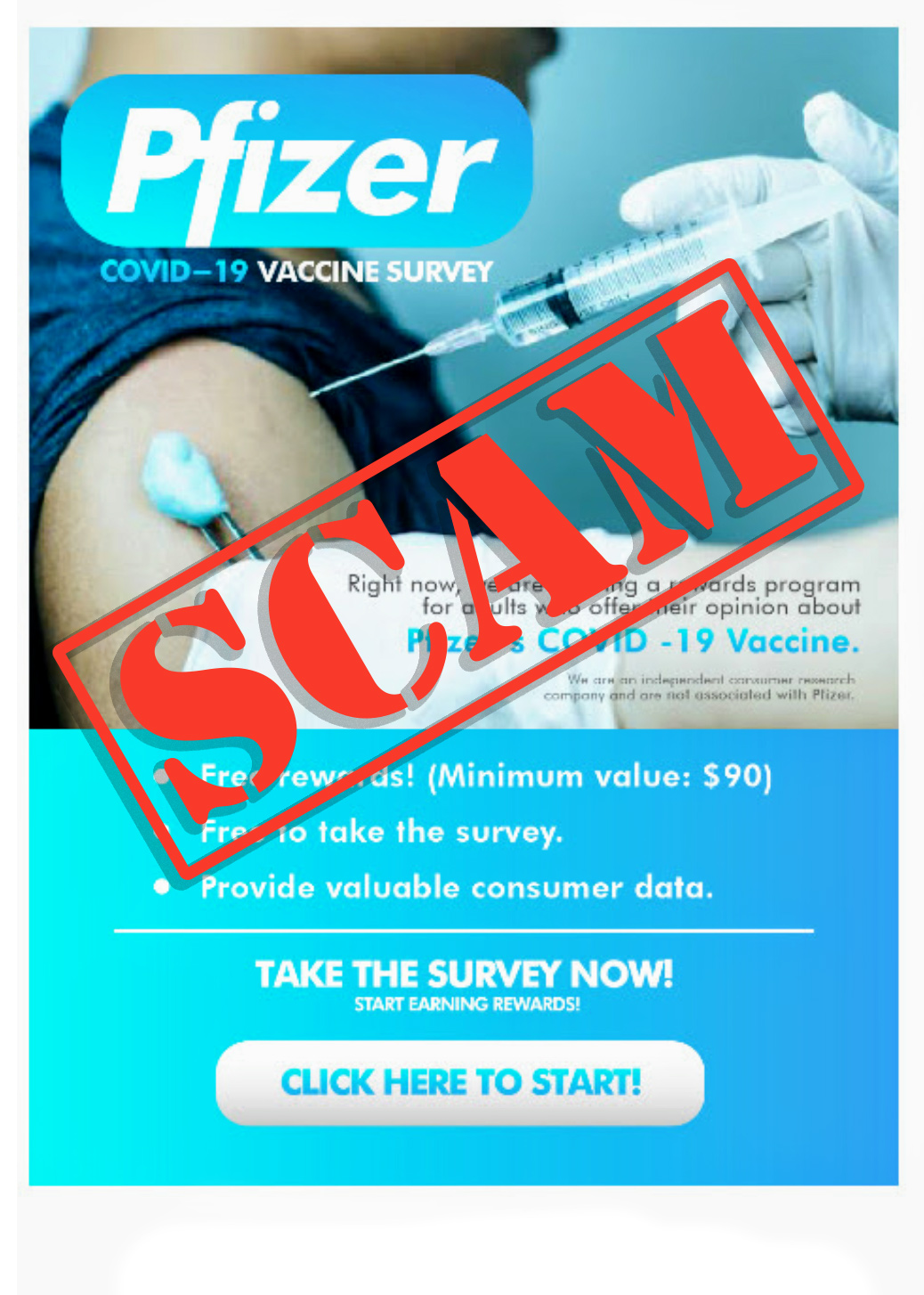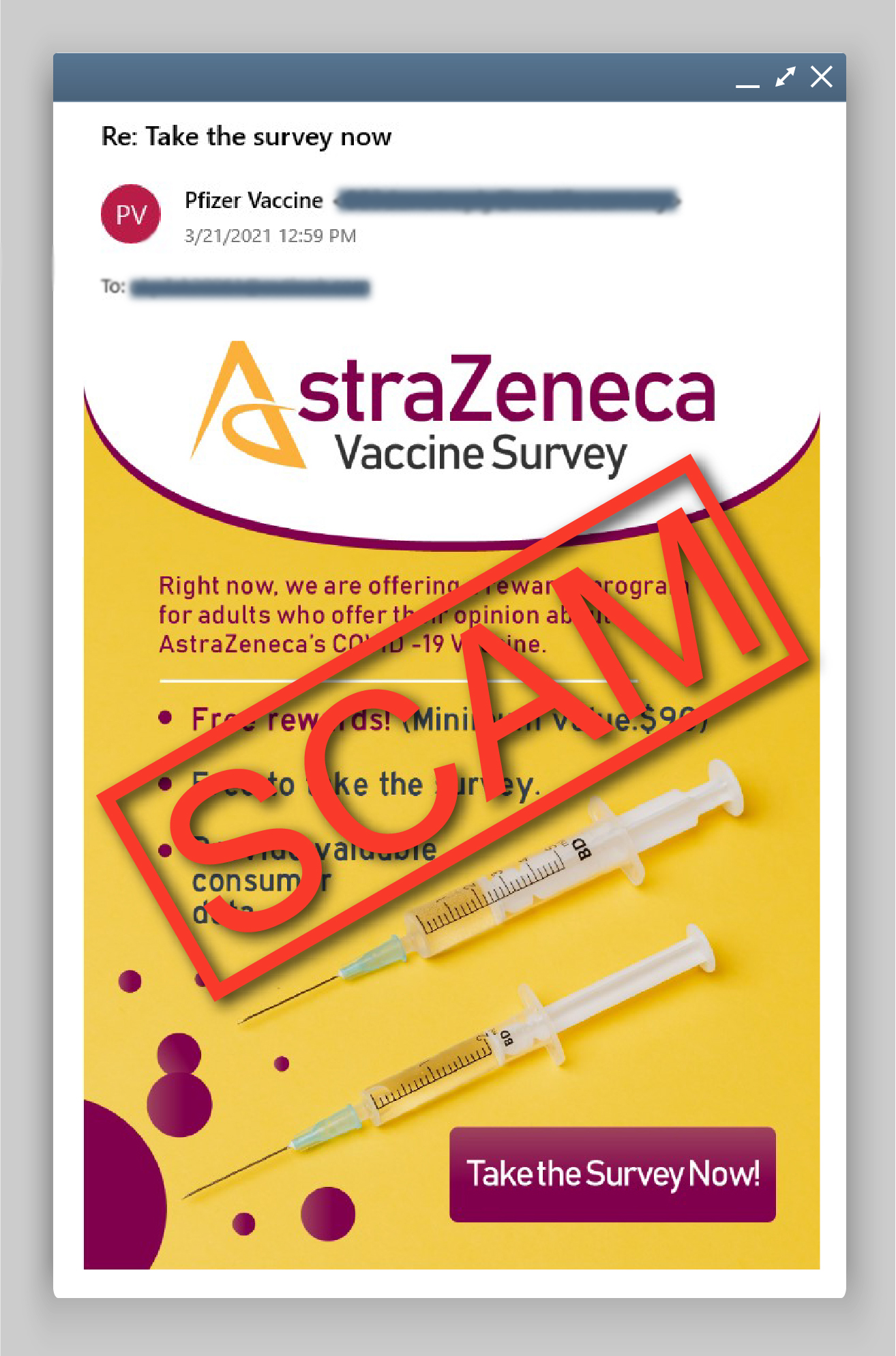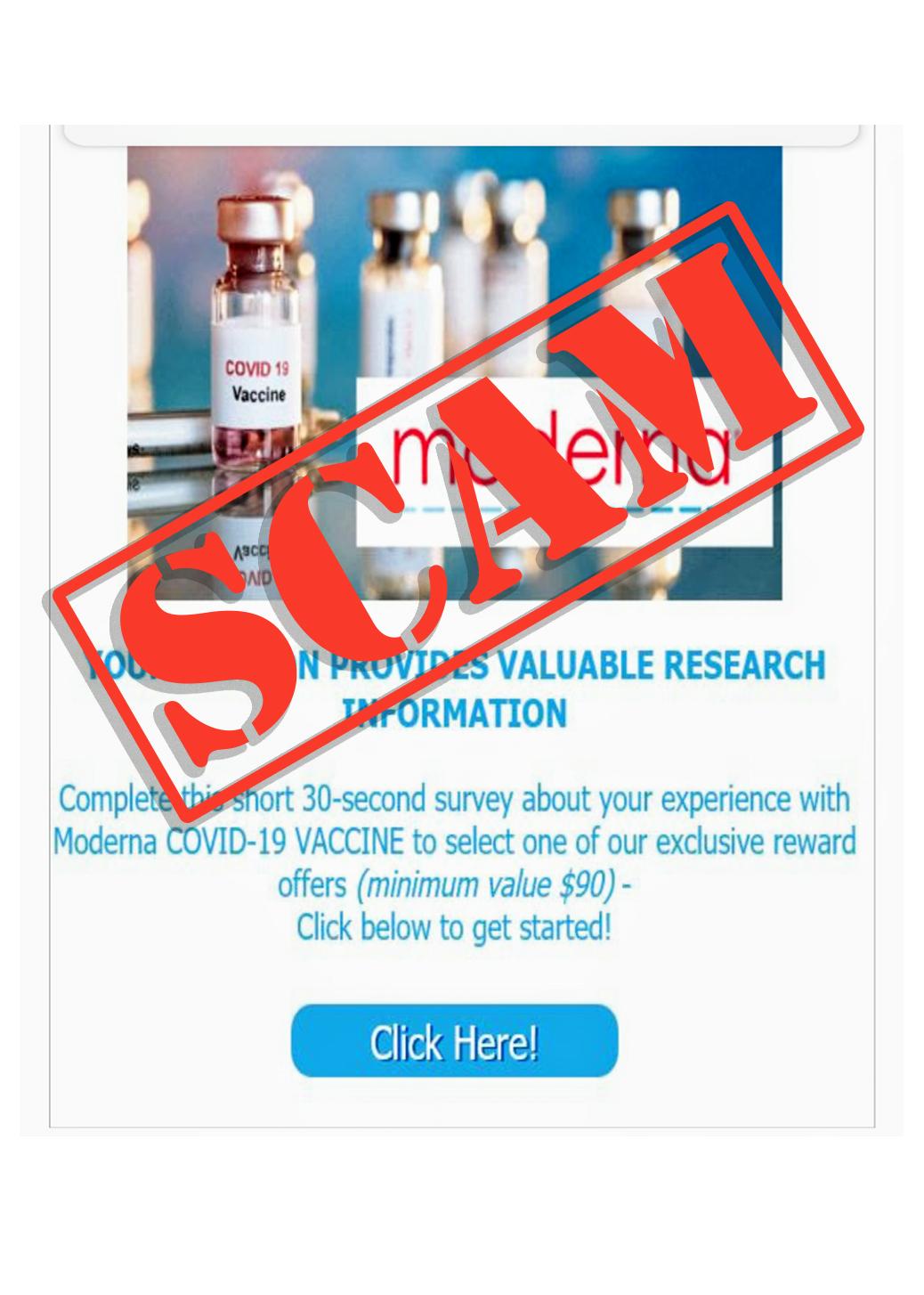"Ignore bogus COVID vaccine survey
Scammers are using a new trick to steal your money and personal information: a bogus COVID vaccine survey.
People across the country are reporting getting emails and texts out of the blue, asking them to complete a limited-time survey about the Pfizer, Moderna, or AstraZeneca vaccine. (And no doubt, there may be one for Johnson & Johnson, too.) In exchange, people are offered a free reward, but asked to pay shipping fees.
If you get an email or text like this, STOP. It’s a scam.



No legitimate surveys ask for your credit card or bank account number to pay for a “free” reward.
If you get an email or text you’re not sure about:
- Don’t click on any links or open attachments. Doing so could install harmful malware that steals your personal information without you realizing it.
- Don’t call or use the number in the email or text. If you want to call the company that supposedly sent the message, look up its phone number online.
Remember:
- Don’t give your bank account, credit card, or personal information to someone who contacts you out of the blue.
- You can filter unwanted text messages on your phone, through your wireless provider, or with a call-blocking app.
- If you get an email or text that asks for your personal information and you think it could be a scam, tell the FTC at ReportFraud.ftc.gov.
To learn more about COVID-related frauds and scams, visit ftc.gov/coronavirus/scams..."
Bogus COVID-19 survey
